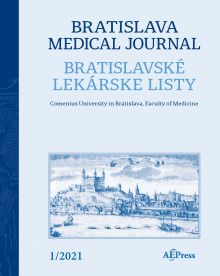Journal info
|
||||
Select Journal
Journals
Bratislava Medical Journal 2024 2023 2022 2021 2020 2019 2018 2017 2016 2015 2014 2013 2012 Ekologia - Ecology Endocrine Regulations General Physiology and Biophysics Neoplasma Acta Virologica Studia Psychologica Cardiology Letters Psychológia a patopsych. dieťaťa Kovove Materialy-Metallic Materials Slovenská hudba 2025Webshop Cart
Your Cart is currently empty.
Info: Your browser does not accept cookies. To put products into your cart and purchase them you need to enable cookies.
Bratislava Medical Journal Vol.116, No.12, p.702-706, 2015 |
||
| Title: Bio-behavioral model of aggression in autism spectrum disorders-pilot study | ||
| Author: A. Pivovarciova, S. Hnilicova, D. Ostatnikova, F. C. Mace | ||
| Abstract: Children with autism spectrum disorders (ASD) have a high rate of irritability and aggressive symptoms which have significant impact on their lives, families and society. The etiology of aggression in humans is likely complex and includes both biological and behavioral causes. Biological approaches have focused on hormones and neurotransmitters that are hypothesized to contribute to the etiology and clinical manifestation of aggressive behavior in humans. Testosterone is a male sex hormone and some studies suggest that it can play a role in the complex etiology of aggressive behavior. Two specific subtypes of aggression have been identified: explosive and non-explosive. Explosive aggression is accompanied by a raged affect and is usually more dangerous and not immediately responsive to behavioral treatment. We propose that individuals with ASD and explosive aggression will have higher androgen activity and higher arousal than neurotypical children and children with ASD without explosive aggression. We employed a unique method for aggression assessment- functional behavioral analysis- to obtain objective and quantitative measures of aggression and arousal signs. In our pilot study, we proposed to determine bio-behavioral model of explosive aggression in children with ASD which will predict which children will be most responsive to antiandrogen therapy and behavioral therapy (Tab. 1, Fig. 1, Ref. 31). |
||
| Keywords: autism spectrum disorders, aggression, testosterone, functional behavioral analysis. | ||
| Published online: 15-Dec-2015 | ||
| Year: 2015, Volume: 35, Issue: 12 | Page From: 702, Page To: 706 | |
| doi:10.4149/BLL_2015_137 |
||
|
|
 download file download file |
|

